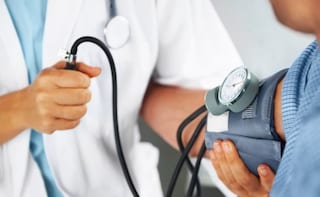One of the biggest challenges in curbing the increasing rate of high blood pressure cases is the inability to spot its occurrence and not taking enough preventive measure to keep the condition at bay. In most cases, hypertension is the product of a sedentary lifestyle coupled with unhealthy eating habits, poor sleep pattern, alcohol or tobacco abuse and high levels of stress and anxiety. Some symptoms for early detection include headache, chest discomfort, palpitations, shortness of breath, irregular heartbeat, nosebleeds and feeling numb or weak. Eating a well-balanced diet, sleeping on time and for at least eight hours and getting decent amount of physical exercise can help prevent hypertension.High blood pressure, if prolonged for a long period of time, can lead to a host of heart-associated ailments including stroke. . "High blood pressure can cause blood clots to form in the arteries leading to your brain, blocking blood flow and triggering lack of oxygen supply to the brain cells and tissues, potentially causing a stroke," Tapan Ghose, Director, Cardiology, Fortis Hospital, Vasant Kunj, New Delhi, told IANS.
Advertisement
For the latest food news, health tips and recipes, like us on Facebook or follow us on Twitter and YouTube.
Advertisement
